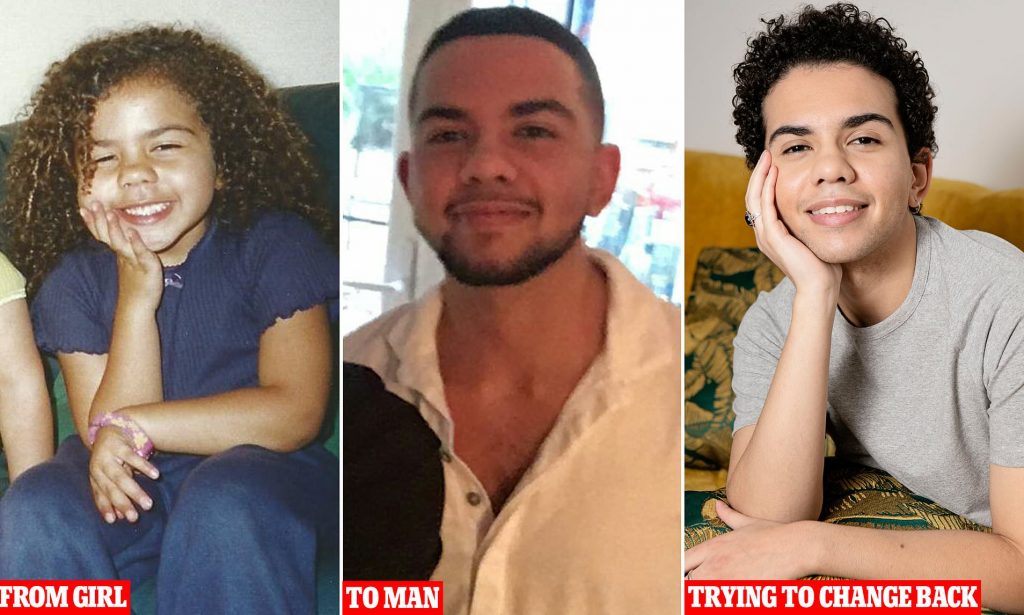Blog Post
VICTORY: UK high court rules that children cannot give consent to puberty-blockers
In an encouraging move, a British Columbian Supreme Court judge ruled last month that a teen girl could not get a double mastectomy to facilitate a “transition” to male after her mother intervened and sued her doctor and cosmetic surgeon, stating that her child did not yet have the ability to understand the consequences of her decision and had been “caught up in a fad.” Now, the lawsuit launched by Keira Bell against the Tavistock gender clinic and Portman NHS Trust in the UK has come to a conclusion—and the judges have ruled in her favor. This is an essential victory for parental rights and for vulnerable children attempting to navigate the gender chaos gripping our culture. From the Daily Mail:
Campaigners have celebrated a victory for ‘common sense’ as the High Court today ruled children under 16 are unlikely to be able to give ‘informed consent’ to take puberty blockers. The ruling came after Keira Bell brought legal action against the Tavistock and Portman NHS Trust, which runs the UK’s only gender identity development service for children.
Ms Bell, a 23-year-old woman who began taking puberty blockers when she was 16, was injected with testosterone at 17 and had a mastectomy aged 20, before ‘detransitioning’. She claimed she was treated like a ‘guinea pig’ at the clinic, and said doctors failed to carry out a proper psychiatric assessment and should have challenged her more over her decision to transition to a male as a teenager.
The judges said in their ruling: ‘It is highly unlikely that a child aged 13 or under would be competent to give consent to the administration of puberty blockers. It is doubtful that a child aged 14 or 15 could understand and weigh the long-term risks and consequences of the administration of puberty blockers.’
Speaking outside the Royal Courts of Justice this afternoon, Ms Bell said she was ‘delighted’ with the High Court’s ruling. She said: ‘This judgment is not political, it’s about protecting vulnerable children. I’m delighted to see that common sense has prevailed.’
Though she is now in the process of transitioning back to a woman, she faces further legal hurdles because by law she is now a man, and may be infertile. Her lawyers had argued that children going through puberty cannot properly consent to taking puberty blockers. They said there was ‘a very high likelihood’ that children who start taking hormone blockers will later begin taking cross-sex hormones, which they say cause ‘irreversible changes’.
The Tavistock and Portman NHS Trust had argued that taking puberty blockers and later cross-sex hormones were entirely separate stages of treatment. The trust argued that medical specialists in this field should be able to make calls based on their assessments and claimed it was ‘a radical proposal’ to suggest children did not have the capacity to give consent. But judges today ruled that both treatments were, ‘two stages of one clinical pathway and once on that pathway it is extremely rare for a child to get off it’.
This means doctors may now seek approval or support from the court before prescribing puberty-blocking drugs to children, to try and avoid liability. If a child is under 18 and may have gender dysphoria, they’ll usually be referred to the Gender Identity Development Service (GIDS) at the Tavistock and Portman NHS Foundation Trust. GIDS has 2 main clinics in London and Leeds.
The team will carry out a detailed assessment, usually over 3 to 6 appointments over a period of several months. Young people with lasting signs of gender dysphoria may be referred to a hormone specialist (consultant endocrinologist) to see if they can take hormone blockers as they reach puberty.
These hormone, or ‘puberty’ blockers (gonadotrophin-releasing hormone analogues) pause the physical changes of puberty, such as breast development or facial hair. Little is known about the long-term side effects of hormone or puberty blockers in children with gender dysphoria.
Although the Gender Identity Development Service (GIDS) advises this is a physically reversible treatment if stopped, it is not known what the psychological effects may be. It’s also not known whether hormone blockers affect the development of the teenage brain or children’s bones. Side effects may also include hot flushes, fatigue and mood alterations. From the age of 16, teenagers who’ve been on hormone blockers for at least 12 months may be given cross-sex hormones, also known as gender-affirming hormones.
These hormones cause some irreversible changes, such as breast development and breaking or deepening of the voice. Long-term cross-sex hormone treatment may cause temporary or even permanent infertility. The legal challenge was also brought by Mrs A, the mother of a 15-year-old autistic girl who is currently on the waiting list for treatment.
She fears her daughter will be fast-tracked for transgender medical treatment once she is seen by clinicians at the GIDS. In the judgment today, Dame Victoria Sharp, sitting with Lord Justice Lewis and Mrs Justice Lieven, said that children under 16 needed to understand ‘the immediate and long-term consequences of the treatment’ to be able to consent to the use of puberty blockers.
The judges added: ‘It is said therefore the child needs only to understand the implications of taking puberty blockers alone … in our view this does not reflect the reality. The evidence shows that the vast majority of children who take puberty blockers move on to take cross-sex hormones.’
Ms Bell and Mrs A’s solicitor Paul Conrathe said the ruling was ‘an historic judgment that protects children who suffer from gender dysphoria’.
He added: ‘Ultimately this case was decided on the facts that were known by the Tavistock. Ironically – and as matter of serious concern – despite its international reputation for mental health work, this judgment powerfully shows that a culture of unreality has become embedded in the Tavistock. This may have led to hundreds of children receiving this experimental treatment without their properly informed consent.’
The court ruled that, ‘in order for a child to be competent to give valid consent, the child would have to understand, retain and weigh’ a number of factors, including ‘the immediate consequences of the treatment in physical and psychological terms’. The child would also need to understand that, ‘the vast majority of patients taking puberty blocking drugs proceed to taking cross-sex hormones and are, therefore, a pathway to much greater medical interventions’.
The judges said in their ruling: ‘It is highly unlikely that a child aged 13 or under would be competent to give consent to the administration of puberty blockers. It is doubtful that a child aged 14 or 15 could understand and weigh the long-term risks and consequences of the administration of puberty blockers. In respect of young persons aged 16 and over, the legal position is that there is a presumption that they have the ability to consent to medical treatment. Given the long-term consequences of the clinical interventions at issue in this case, and given that the treatment is as yet innovative and experimental, we recognise that clinicians may well regard these as cases where the authorisation of the court should be sought prior to commencing the clinical treatment.’
Lui Asquith, from the trans children’s charity Mermaids, said the ruling was a ‘devastating blow’, adding: ‘Every young person has the right to make their own decisions about their body and that should not differ because somebody is trans.’
Lui claimed the court was, ‘treating trans young people differently to every other child in the country.’
Nancy Kelley, Stonewall’s chief executive, added: ‘Today’s court ruling about the prescription of puberty blockers is both deeply concerning and shocking. We’re worried this judgment will have a significant chilling effect on young trans people’s ability to access timely medical support.’
Susan Evans, who was previously employed by the Tavistock as a psychiatric nurse, said she hoped the ruling would ‘change their attitude’ at the NHS trust.
She said: ‘It was just to ensure that there was a sort of pause on what’s currently happening with this kind of, at times quick, process towards a medicalised treatment and to allow more time for assessment and psychological treatments for young people.’
She added: ‘I’m hoping now that they will be asked to take serious steps towards addressing their treatment protocols… Certainly what is not going to happen is children won’t go to the Tavistock and after two or three appointments be referred for medication, which is what was happening, despite their denials.’
Asked about whether the ruling would have an impact on transgender adults, Ms Evans said: ‘Generally, this is just my clinical opinion, is that really anyone who considers taking steps to transgender should certainly examine their kind of emotional world, their mental state before progressing to something physical and taking those steps, you shouldn’t do any of that without (a) kind of consideration and investigation.
‘I certainly think that if you’re going to alter your body, and make adjustments to your body, that it’s worth, whether you go on to do it or not, taking steps in that way.’
An NHS spokesperson said: ‘We welcome the clarity which the court’s decision brings. The Tavistock have immediately suspended new referrals for puberty blockers and cross-sex hormones for the under 16s, which in future will only be permitted where a court specifically authorises it. Dr Hilary Cass is conducting a wider review on the future of gender identity services.’
The court refused the Tavistock and Portman NHS Trust’s application for permission to appeal against the ruling and gave the Trust until December 22 to apply directly to the Court of Appeal.
Speaking before today’s ruling, Ms Bell said: ‘I made a brash decision as a teenager, as a lot of teenagers do, trying to find confidence and happiness, except now the rest of my life will be negatively affected.
‘Transition was a very temporary, superficial fix for a very complex identity issue.’
Tragically, Bell had a double-mastectomy and other irreversible “treatments” prior to this realization, and she launched her legal action to protect others from the mistakes that were encouraged and facilitated by adults. This is a major blow to the ambitions of trans activists (who will surely appeal the case.) Maybe—just maybe—this is one step in the right direction.








